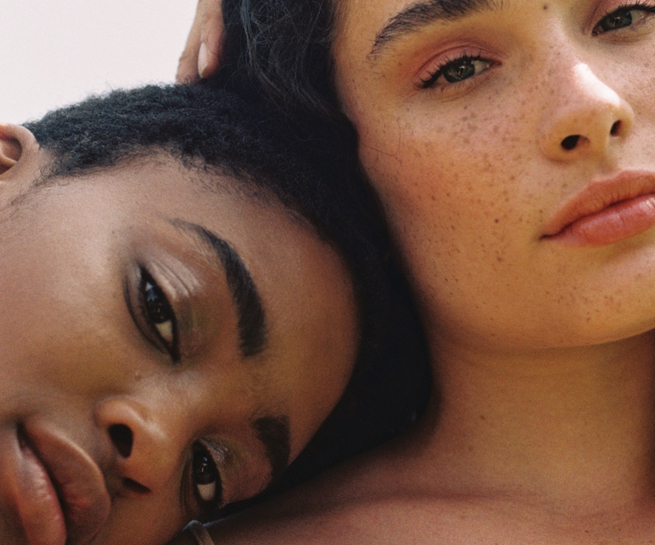Sun Protection MYTHS You Need To Stop Believing

As a beauty editor learning about new products and methods and how to implement them into my routine is a huge part of my job. My views on health, beauty and self-care are constantly being challenged by new research and advances in technology and also the discovery of ancient beauty remedies and systems of healing. I am constantly questioning everything I thought I knew, from thinking that white spots on your nails mean you need more calcium, to washing my hair until it’s squeaky clean.
Myths within the beauty world are prevalent and whilst some are harmless others can be deadly and one of the most harmful skin-care misconceptions is that those with darker skin tones do not need sun protection.
Whilst melanin does indeed offer some levels of protection it has it’s limitations and although dark skinned people are less likely to get skin cancer, statics show that they also are more likely to die from it. According to research by the Skin Cancer foundation, “the estimated five-year melanoma survival rate for black patients is only 65% compared with 91% for white patients”.
As lockdown begins eases and we start thinking about getting out and enjoying the warm weather we wanted to set the record straight once and for all and asked renowned industry expert Dija Ayodele, Aesthetician and founder of Black Skin Directory and Westroom Aesthetics to educate us on some of the most common misconceptions about suncare and also tapped her for her favourite products.
FACT: “To protect the skin from UVA rays which cause premature ageing inducing fine lines, wrinkles and worsening hyperpigmentation. UVB Rays burn the skin and can lead to potentially cancerous cell mutations”.
FACT: “Not really, sunscreen degrades over time, even in the sun. Sweating and touching your face also reduces its efficacy, so it’s best to top up during the day. If you have make up on you can always use a translucent SPF powder”.
FACT: “It’s important to note that long term unprotected sun exposure puts all skin tones at risk of a number of conditions; from Actinic Keratosis to carcinoma and melanoma, which are forms of skin cancer. Additionally, UV radiation also worsens hyperpigmentation and hastens the development of lines and wrinkles”. Therefore health bodies recommend daily supplementation of vitamin D. We advise that you check with your GP to find out what would be the right amount for your needs”.
FACT: “No truth in these claims, ingredients both in UK and America are highly regulated and heavily researched”.
FACT: “Sunscreen is like hairspray, it’s designed to stick so very important to cleanse properly every evening, you can read more about this in my article for Black Skin Directory”.
FACT: “No it’s not. A tan is a sign of sun damage, there is no such thing as a safe tan I’m afraid”.
FACT: “UV Rays pass through clouds and glass, sunny or not, SPF is an all year round requirement. Rays can also bounce off water and snow and affect the skin”.
FACT: “Yes! SPF in make-up is more or less pointless and doesn’t give adequate protection, all it does is offer a false sense of protection”.
“Depends on what I’m doing but I tend to go between UltraSun Face Pigmentation, Neostrata Sheer Physical“.
“Currently I’m loving Glossier Invisible Shield and Ecooking Sunscreen. I always use UltraSun Sport on my body”.
Words: @Abisoye Odugbesan
Follow: @dija_ayodele and @blackskindirectoryuk
We've got great things to share!
Sign up for our weekly newsletter
and we'll keep you updated.
You can unsubscribe at any time
Terms & Privacy